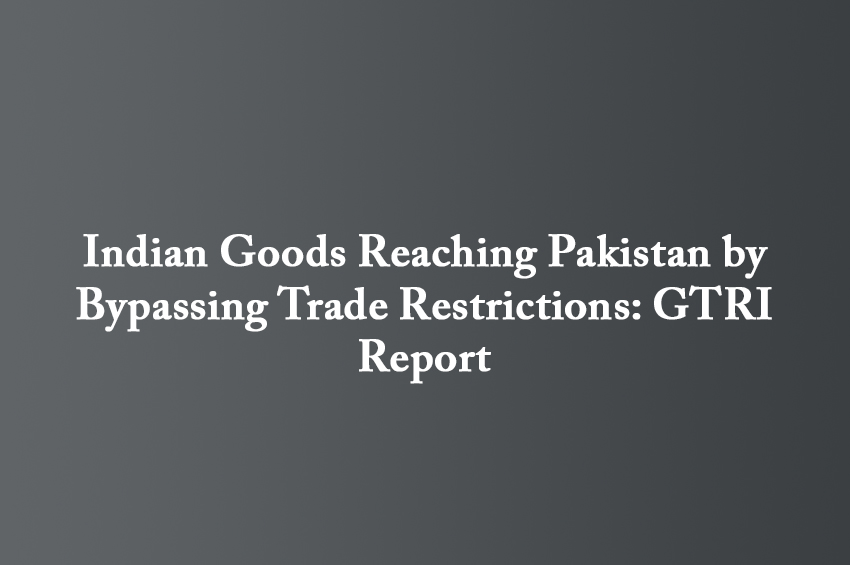Winning Bizness Desk
Mumbai. Despite formal trade restrictions between India and Pakistan, Indian goods worth over $10 billion (around Rs 85,000 crore) are finding their way to Pakistan annually. According to a report by the Economic think tank Global Trade Research Initiative (GTRI), this is done by altering labels and documents in bonded warehouses located at ports like Dubai, Singapore, and Colombo. Indian firms export goods to these ports, where independent agencies unload and store them without paying any duty during transit.
Label Change Tactic in Bonded Warehouses
Ajay Srivastava, founder of GTRI, explained that in bonded warehouses, labels and documents of Indian goods are changed to show a different country of origin. For instance, goods manufactured in India are relabelled as 'Made in UAE'. Post relabelling, these products are shipped to Pakistan, effectively bypassing direct trade restrictions between the two nations. Companies using this route also manage to sell goods at higher prices and avoid regulatory scrutiny as it appears the goods are traded through third countries.
Impact of Recent Tensions on Trade
Amid escalating tensions following the Pahalgam terror attack, India has moved to close the Attari Integrated Check Post, and Pakistan has decided to halt bilateral trade. Exporters warn that these developments could bring the already strained India-Pakistan trade to a complete standstill. Trade ties had already weakened significantly post the 2019 Pulwama attack, and the current situation might sever the remaining links entirely.
Decline in Bilateral Trade Over the Years
India's exports to Pakistan were valued at $447.65 million between April 2024 and January 2025, while imports stood at a mere $0.42 million. In FY 2023-24, exports totaled $1.18 billion and imports $2.88 million. During 2022-23, India exported $627.1 million worth of goods to Pakistan, and imports stood at $20.11 million. In 2021-22, exports were valued at $513.82 million, while imports amounted to $2.54 million. Main imports from Pakistan included fruits, nuts, some oilseeds, medicinal plants, organic chemicals, and project goods.
Heavy Tariffs Post Pulwama Attack
Following the 2019 Pulwama terror attack, India sharply hiked tariffs on imports from Pakistan to 200 percent, practically amounting to an import ban. Before this move, in 2017-18, Pakistan’s exports to India were worth $488.5 million, with key products being fresh fruits and cement. The steep tariff hike disrupted these trade flows, and fresh measures could now further isolate bilateral commerce.
Key Takeaways:
- Indian goods worth $10 billion annually reach Pakistan via third countries.
- Labels and documents are altered in bonded warehouses at transit ports.
- Goods are relabelled, for example, as 'Made in UAE'.
- Trade restrictions are bypassed, allowing higher pricing and avoiding scrutiny.
- India and Pakistan’s trade could completely halt after the Pahalgam attack.
- Trade ties had already weakened significantly post-2019 Pulwama attack.
- India had imposed 200% import duty on Pakistani goods after 2019.


